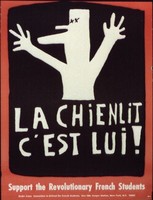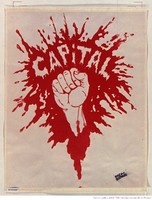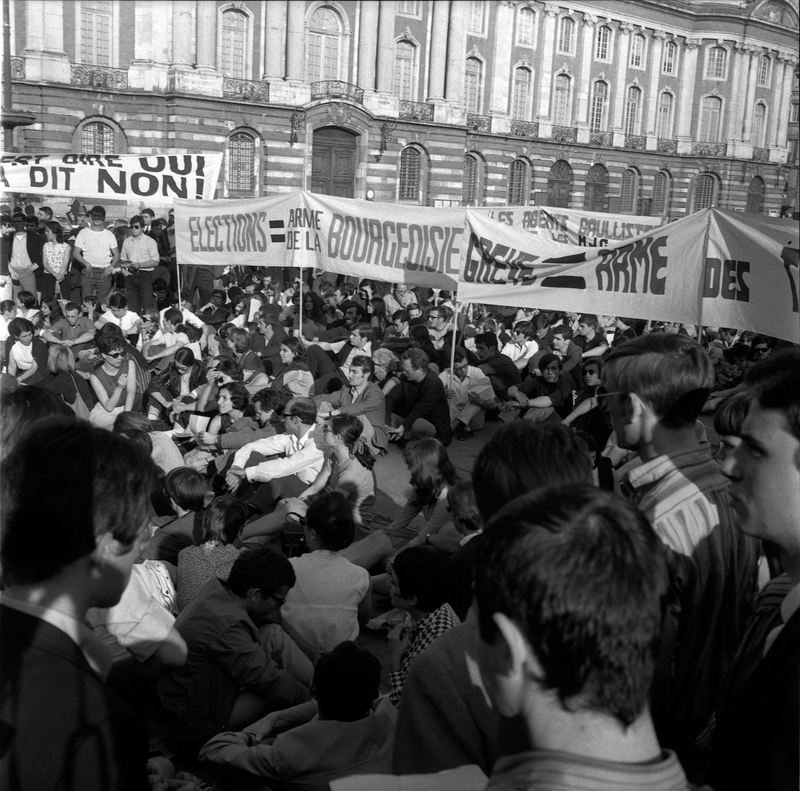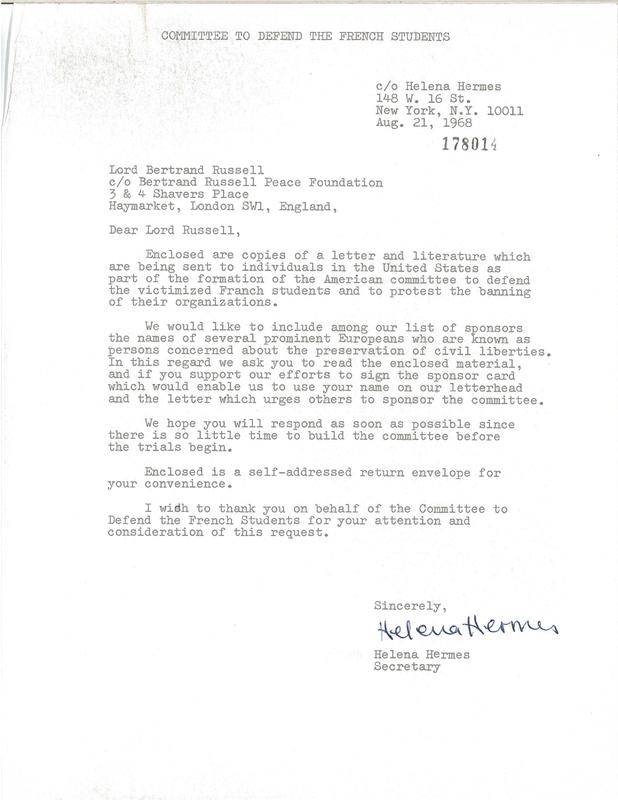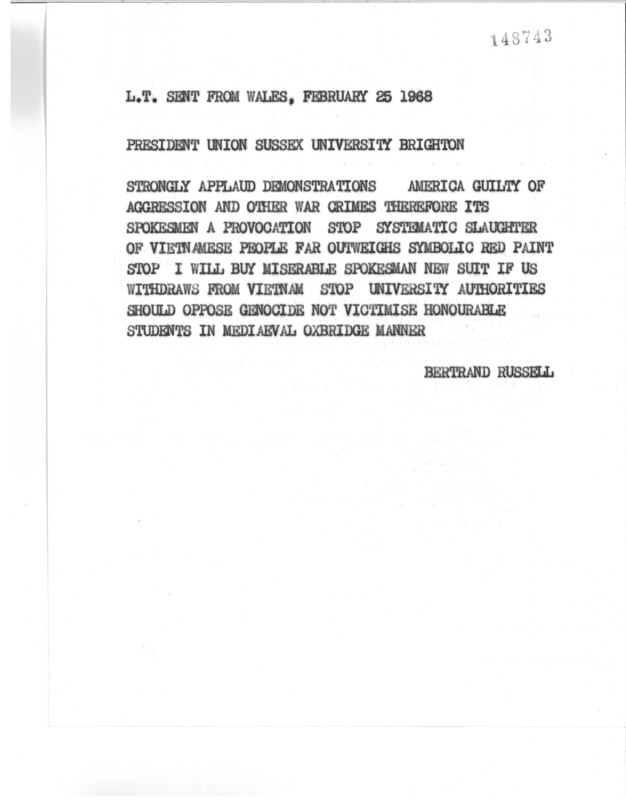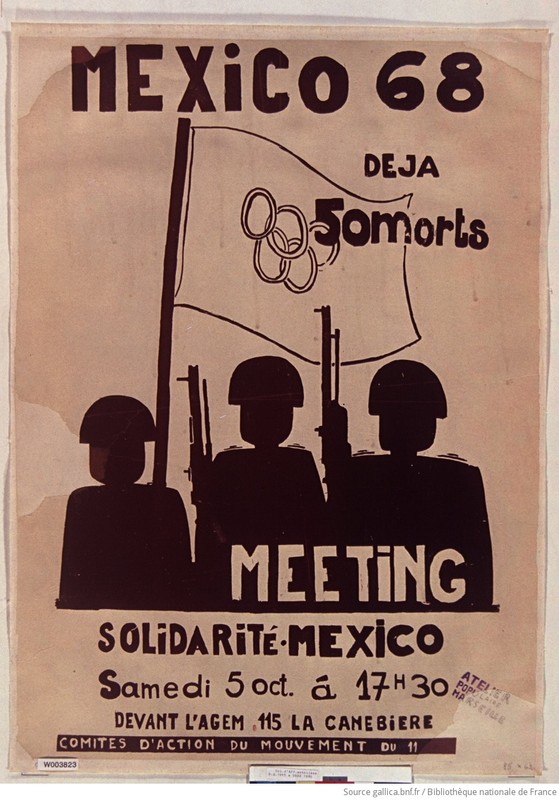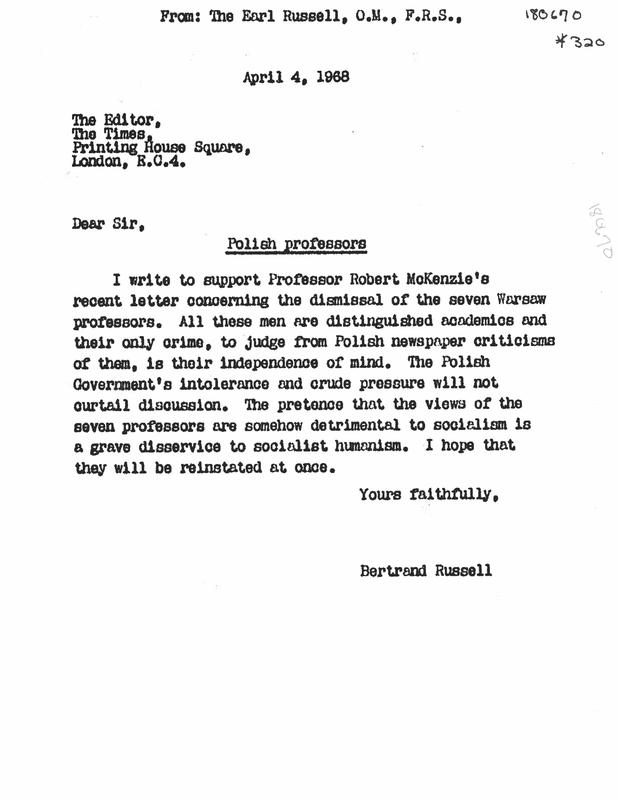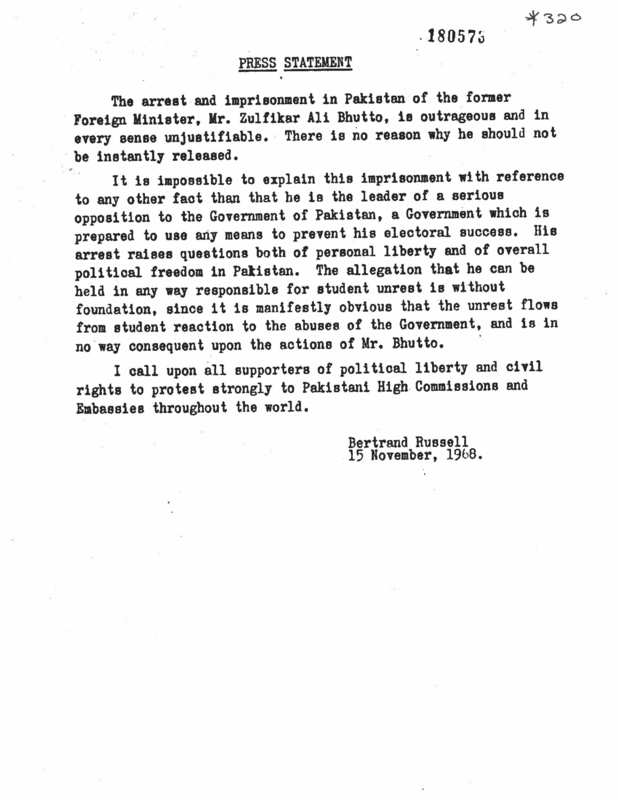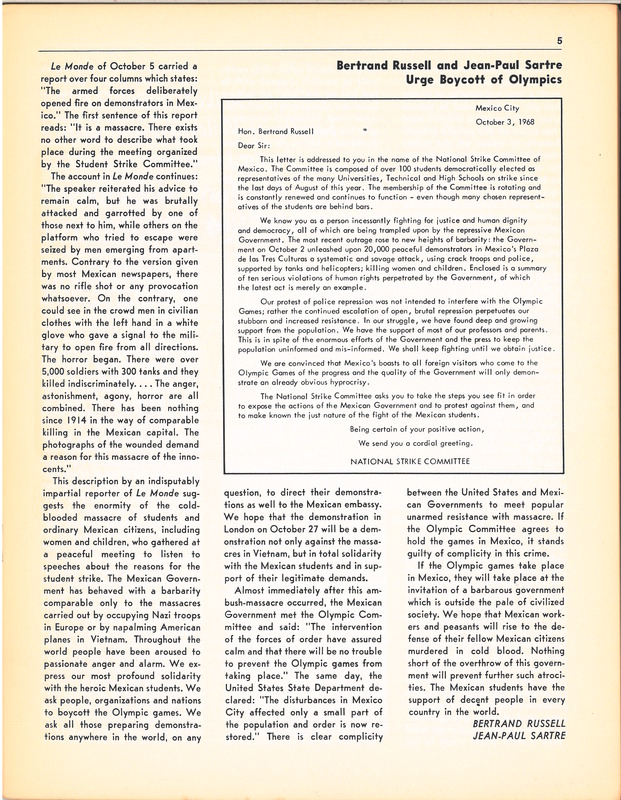May '68 and the Student Protest Movement
What was May '68?
A student revolt. A general strike. A riot. A dividing line between the history of the Old Left and the New Left. In many respects, the meaning of the events which took place in Paris in 1968 would be argued and debated for years to come. May '68, due to its ideas, strategies, and calls for radical change, continues to resonate with students and political activists today.
Although Bertrand Russell did not participate in the ‘68 movement directly, his impact on Leftist and student politics are intertwined with the anti-war aspects of the student revolt. The conclusions of the International War Crimes Tribunal – in which the preeminent intellectuals of the French Left, Simone de Beauvoir and Jean-Paul Sartre, were heavily involved – gave language and evidence to the anti-war movement and were referenced by the Parisian students as they rioted in the streets.
Russell’s support of the student movement is clear from his documentary legacy. In a telegram to his secretary Ralph Schoenmann, Russell expresses his endorsement of the May 6th rally (95229). At the University of Sussex, students splattered red paint on a visiting US press official, Robert Beers, who had arrived to participate in a ‘teach-in’ on Vietnam. Two students, who denied responsibility, were suspended. The incident sparked protests, and in the heat of the anti-Vietnam war demonstrations, American flags were burned, and 600 students participated in a “fast for peace” in March. Russell telegrammed the student union president, Tom Macan, and issued his support for the movement: “STRONGLY APPLAUD DEMONSTRATIONS” and “I WILL BUY MISERABLE SPOKESMAN A NEW SUIT IF US WITHDRAWS FROM VIETNAM.”
But most relevant is Russell’s personal sponsorship of the New York-based Committee to Defend the French Students, whose political goals were the following:
1. Immediate release of all political prisoners and the dismissal of all charges against them.
2. Immediate repeal of the ban on all the proscribed political organizations.
3. Reaffirmation by the French government of the right of free access for all foreign journalists and all foreign students.
4. An immediate end to the brutal police repression of demonstrations and other attacks on the civil liberties of the French people.
Student Protest Around The World
In the popular memory of May '68, the student movement is represented by Parisian youth barricaded in French boulevards. This image whitewashes the transnationalism of the ‘68 student movement, which burst into the political scenes of Poland, Pakistan, Iran, Senegal, and Tunisia at the same moment.
In the history of these student-led political protests, which were less well-known to the Western world, Russell used his persona as an advocate for the oppressed peoples of the world to speak out against political suppression.
A student rally held at the University of Warsaw on 8 March 1968 was brutally suppressed by the government. This student protest ignited a movement against the authority of the Polish communist leader, Władysław Gomułka, who in turn, scapegoated Jewish government officials and academics. The subsequent antisemitic purge forced the migration of 13,000 Polish Jews, all of whose citizenship rights were nullified. In a letter to the New York Times, Russell advocates for seven professors, stating that their only crime was “independence of mind.”
In Mexico, the Mexican Movement of 1968, or the Movimiento Estudiantil, was fighting against political corruption and urging for greater political freedoms. The movement was gaining international support and public awareness in anticipation of the 1968 Olympics, held in Mexico City. On October 2, Mexican police opened fire indiscriminately on protesting students, killing hundreds, in what would become known as the Tlatelolco massacre. Russell and Sartre, who had been monitoring the devastating events in Mexico closely, issued a statement calling for a boycott of the ‘68 Olympics. They did not equivocate in their condemnation, writing, “Nothing short of the overthrow of this government will prevent further such atrocities”.
The Pakistan Revolution of 1968-1969 began with student and worker protests and concluded with the outing of the dictator Ayub Khan. A key moment in the struggle was the arrest of the opposition leader, Zulfikar Ali Bhutto, who was dubiously blamed by the government for the student unrest. Prior to his arrest, Russell had exchanged correspondence with Bhutto and sent him a copy of his autobiography, to which the future president replied, “I deeply appreciate your encouragement and support. The task is very great but I think it can be overcome successfully with determination” (69044). Russell would later send representatives of the Peace Foundation to visit him in prison (69050). Russell did not live to see Bhutto become Pakistan’s ninth prime minister in 1974.
Bibliography
-
Fidelis, Malgorzata. “Tensions of Transnationalism: Youth Rebellion, State Backlash, and 1968 in Poland". The American Historical Review 125, no. 4 (2020): 1232–59.
-
Halliwell, Martin, and Nick Witham, eds. Reframing 1968: American Politics, Protest and Identity. Edinburgh: Edinburgh University Press, 2018.
-
Hendrickson, Burleigh J. Decolonizing 1968: Transnational Student Activism in Tunis, Paris, and Dakar. Ithaca, New York: Cornell University Press, 2022.
-
“Militants and Moderates in the Universities”. Minerva 7, no. 1/2 (1968): 284–300.
- Pensado, Jaime M., and Enrique Ochoa, eds. México beyond 1968: Revolutionaries, Radicals, and Repression during the Global Sixties and Subversive Seventies. Tucson: University of Arizona Press, 2018.
